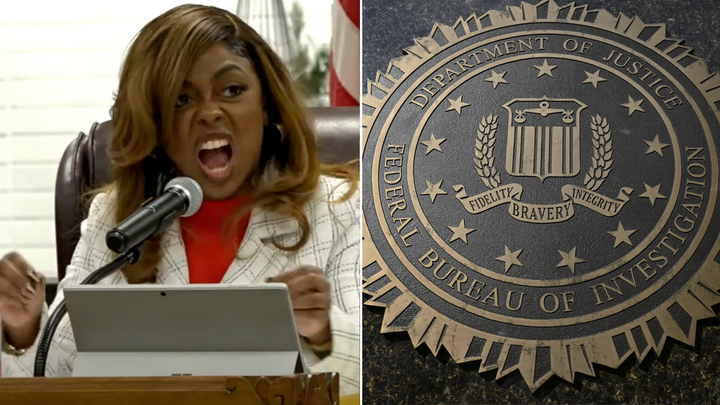The Village of Dolton, Illinois, has recently been thrust into the national spotlight, not for achievements in governance or community development, but for a burgeoning scandal that encapsulates the worst fears of fiscal conservatives: a leader accused of corruption, abuse of power, and a blatant disregard for the stewardship of taxpayer dollars. At the heart of this controversy is Mayor Tiffany Henyard, whose administration has been marred by allegations so severe they’ve earned her the ignominious title of “the worst mayor in America” among her constituents.
Mayor Henyard’s tenure has been under intense scrutiny over the past few months, with the FBI launching investigations into accusations of abuse of power and corruption. Central to these allegations is the claim that Henyard has been involved in shutting down businesses that failed to contribute to her campaign, essentially wielding her power to stifle dissent and enrich her coffers. But the accusations don’t stop there; she’s also been accused of diverting charitable funds intended for cancer research to her personal use, alongside utilizing taxpayer dollars for personal extravagances, including travel to destinations like Las Vegas.
The monthly town hall meetings, once a forum for civic discussion and problem-solving, have devolved into heated confrontations between the mayor and disgruntled residents. Security measures have been ramped up, with the number of attendees severely limited, leading to accusations of transparency avoidance and further eroding public trust.
At the latest town hall meeting, the frustration of Dolton’s citizens boiled over. Residents, some of whom have been personally affected by the mayor’s alleged misappropriation of funds, voiced their outrage directly. One poignant testimony came from a resident battling cancer, who accused Henyard of stealing funds from a cancer foundation. This accusation highlights not just a breach of public trust but a deep moral failing, exploiting the vulnerability of the community’s most afflicted members for personal gain.
This incident sheds light on the broader implications of Henyard’s alleged actions, suggesting a pattern of behavior that prioritizes personal enrichment over public service and welfare. The “Tiffany Henyard CARES Foundation,” ostensibly established to support cancer survivors, has come under fire for financial opacity, prompting state-level scrutiny from Illinois Attorney General Kwame Raoul.
Further compounding the controversy is Henyard’s alleged misuse of public funds for personal luxuries, including trips and possibly other non-official expenses. This flagrant misuse of taxpayer money, if proven, underscores a disturbing disregard for the fiduciary responsibilities inherent to public office. Such actions, coupled with efforts to stifle investigative efforts — as evidenced by the vetoing of a board resolution aimed at probing her spending — paint a picture of governance characterized by evasion and obfuscation.
The outcry from Dolton’s residents extends beyond financial grievances, touching on deeper issues of governance, accountability, and ethical leadership. Accusations of weaponizing the local police force against political enemies and retaliating against dissent highlight a concerning approach to power, one that seems more aligned with personal vendettas than with the public interest.
In response to mounting pressure, Mayor Henyard has adopted a defensive posture, accusing the media of sensationalizing the town’s political strife for clicks and ratings. However, this attempt to deflect criticism fails to address the substantive issues at hand, leaving residents’ concerns unaddressed and further eroding public trust.
The unfolding scandal in Dolton, Illinois, serves as a stark reminder of the consequences of unchecked power and fiscal irresponsibility in local government. It underscores the need for vigilant oversight, transparency, and accountability in public office. As Dolton grapples with these allegations, the path forward must involve a thorough investigation of the claims against Mayor Henyard, a commitment to ethical governance, and a renewal of the covenant between elected officials and the constituents they serve.
As the investigation into Mayor Henyard’s actions continues, the residents of Dolton are left to reckon with the implications of these allegations for their community. It is a moment of reflection, not just for this Illinois village but for all who believe in the principles of responsible, transparent, and ethical governance. The saga of Dolton’s discontent is far from over, but it is a pivotal chapter in the ongoing struggle to uphold the integrity of public office and safeguard the public trust from the corrosive effects of corruption and mismanagement.









